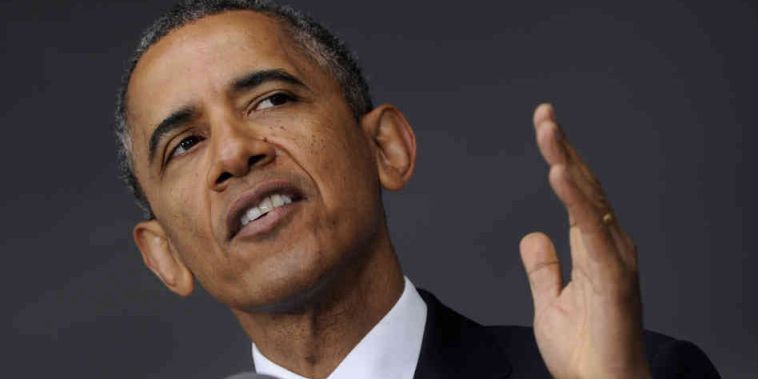Iraq is ablaze and the temptation is powerful for the interventionist bipartisan establishment to reinsert itself into the conflict. The president has already asserted he doesn’t need new permission from Congress to act. Senate Minority Leader Mitch McConnell, having dispatched his conservative primary challenger, apparently agrees.
Videos By Rare
The reason is the previously enacted Authorization for Use of Military Force (AUMF) in Iraq still stands.
While it is debatable whether Congress ever intended the resolution it passed over a decade ago to be a blank check for war in Iraq in perpetuity, there’s always the risk of it being used as such.
Some even argued back then that congressional authorization of the 1991 Persian Gulf War made a vote on the second Iraq war over a decade later unnecessary. While the president and Democratic leaders assure the American people there will be no combat troops on the ground, war—and that is unmistakably the term that describes what is happening in Iraq right now—seldom progresses in a predictable fashion.
There was more than a decade of hostility between the two Iraq wars, with a 1998 law—signed by Bill Clinton—in between that made regime change in Baghdad the official policy of the U.S. government. Just because the current administration doesn’t for the moment seem inclined to follow the Weekly Standard’s advice to re-fight the Iraq war doesn’t guarantee everything will have fizzled out by the time the next president is sworn in.
Rick Perry talked about sending troops back to Iraq even back in 2012, before the current violence and instability. Marco Rubio has so far stopped short of that, but his analogy of Iraq to when Afghanistan was a safe haven for al Qaeda implies a willingness to use greater force. Hillary Clinton appears to have found religion on Iraq ahead of the Democratic primaries, but it’s worth remembering that she advised against withdrawal within the White House.
Indeed, the last two wars to proceed without any congressional approval whatsoever—Kosovo and Libya—were launched by Democratic presidents.
We are currently in precisely the situation that led Rand Paul to support a bipartisan effort to repeal the Iraq authorization of military force. Kentucky’s junior senator described it as a way “to bring the war to an official and legal end.”
Moreover, Paul said, repeal “ensures that our military involvement in Iraq is officially closed and that any future engagement will require Congressional authorization and support, as required by the Constitution.”
A Democratic-controlled Senate has declined to pass Paul’s repeal bill, despite the support of liberals like Ron Wyden and Elizabeth Warren. The last vote was a lopsided 67 to 30 against. They may come to regret this if yet another President Bush fights yet another war in Iraq—this time without approaching Congress.
Republicans have lagged behind in their support for repeal, many of them still stuck in 2003. But Jim DeMint, currently the president of the Heritage Foundation, voted for it before leaving the Senate. Mike Lee, a leading Tea Partier, is a cosponsor. Mark Sanford, the libertarian-leaning South Carolina congressman, cosponsored an amendment to sunset AUMF.
Next time you hear a lawmaker in either party express relief that the Iraq war is over and the troops are home, inquire as to where they stand on repealing the authorization for the war.
If they would vote against the repeal, one has to wonder why.
Repealing the authorization of force is unlikely to preclude the president from providing basic advice and intelligence to Baghdad at the Iraqi government’s request. It would not stop diplomacy aimed at drying up the ISIL jihadists’ funding. And if the threat they pose to America—as opposed to Nouri al-Maliki’s job—grows, we can debate new action transparently in the public eye.
But the decision to strike would not be left to just one man (or woman). A new war against a new enemy will need the support of a new Congress, just as the Founding Fathers intended. The president could still preempt, repel or retaliate against attacks on Americans, but cannot initiate new hostilities.
Recent polling shows overwhelming opposition to sending troops back to Iraq. Large majorities of Democrats and independents plus a plurality of Republicans would prefer to stay out of the conflict entirely.
Repealing the old authorization of force against Iraq would be one way to ensure that no current or future president is able to disregard this public sentiment unilaterally.
Ask those running for reelection in November: Is it time to end the Iraq war? Or start a new one?

